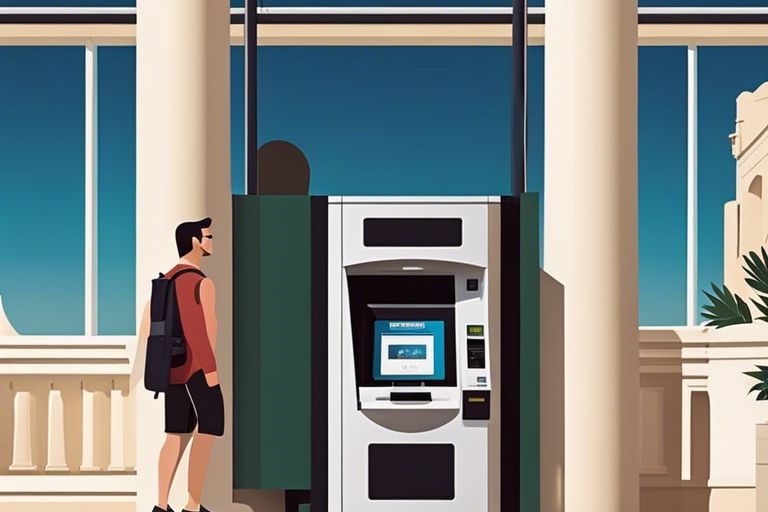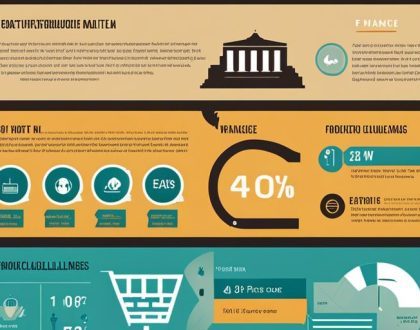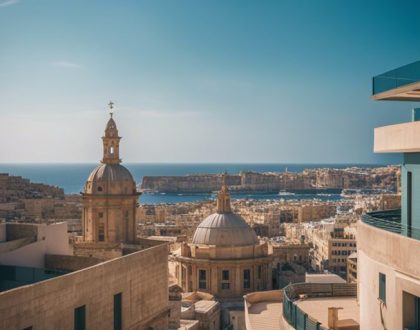Banking in Malta – A Guide for Expats

This comprehensive guide is designed to provide #expats moving to #Malta with important information on #banking in the country. Malta offers a robust banking system that caters to the needs of foreigners, but there are important details and requirements that expats should be aware of to ensure a smooth and secure banking experience.
From opening a bank account to understanding fees and tax regulations, this guide will cover everything you need to know about banking in Malta as an expat. Whether you are relocating for work, retirement, or lifestyle, having the right information about banking in Malta is crucial for managing your finances and settling into your new life with confidence.
Types of Banking Institutions in Malta
A key aspect to consider when moving to Malta is the banking sector. There are various types of banking institutions in the country that cater to the needs of expats and residents alike. From major banks to specialized financial institutions, Malta offers a range of options for individuals looking to manage their finances effectively.
- Major banks
- Specialized financial institutions
Major Banks and Their Services
Now, let’s research into the major banks in Malta and the services they offer to customers. The country is home to well-established banks such as Bank of Valletta, HSBC, and APS Bank. These banks provide a wide range of services including savings accounts, current accounts, loans, and investment opportunities. Customers can also benefit from online and mobile banking services for convenient access to their accounts.
Thou, it is important to compare the offerings of each major bank to find the one that best suits your financial needs and preferences.
Specialized Financial Institutions
Any expat or resident looking for more specialized financial services in Malta can turn to specialized financial institutions. These institutions focus on specific areas such as wealth management, investment advisory, and corporate banking. While they may not offer the same breadth of services as major banks, they provide tailored solutions for individuals with specific financial goals.
Their expertise in niche areas can be beneficial for expats looking for personalized financial advice and services.
Online and Mobile Banking Options
Banking in Malta includes a variety of online and mobile banking options to cater to the digital needs of customers. With the increasing reliance on technology, major banks and specialized financial institutions offer secure online platforms and mobile apps for convenient banking on the go. Customers can easily manage their accounts, transfer funds, and pay bills with just a few clicks.
Institutions take data security seriously, implementing advanced encryption and authentication measures to protect customers’ information.
Setting Up a Bank Account: Step-by-Step Guide
The process of setting up a bank account in Malta is relatively straightforward for expats, but it’s important to understand the specific requirements and considerations. Here is a step-by-step guide to help you navigate through the process smoothly.
Types of Accounts Available for Expats
Now let’s discuss the types of bank accounts that are available for expats in Malta. The two main types of accounts you can consider are savings accounts and current accounts. Savings accounts are ideal for those looking to set aside funds for future use, while current accounts are more suitable for day-to-day transactions and bill payments.
Importantly, both types of accounts offer various features such as online banking, debit cards, and in some cases, interest on your balance. Any additional requirements or fees associated with these accounts will depend on the bank you choose and the specific account package.
Required Documentation and Procedures
You will need to provide certain documentation and follow specific procedures to open a bank account in Malta. You will typically be required to present a valid passport, proof of address, and proof of income. Additionally, some banks may request a reference from your current bank.
For instance, some banks may require you to visit a branch in person to complete the account opening process, while others may allow for online applications. It’s imperative to inquire about the specific requirements and procedures of the bank you choose to ensure a smooth account opening process.
Important Considerations for Non-Residents
There’s important considerations to keep in mind for non-residents looking to open a bank account in Malta. Non-residents may face additional requirements such as proof of employment or a residence permit. Additionally, non-residents may be subject to different fees or restrictions compared to residents.
StepbyStep, when opening a bank account in Malta as a non-resident, make sure to research the specific requirements for non-residents set by the bank you choose. Understanding these considerations can help you avoid any delays or issues in the account opening process and ensure a smooth banking experience in Malta.
Everyday Banking Tips for Expats in Malta
Now that you’ve relocated to Malta, it’s vital to familiarize yourself with the banking system in the country to ensure smooth financial transactions during your stay. Here are some everyday banking tips for expats in Malta:
Managing Your Accounts
To effectively manage your accounts in Malta, it’s crucial to stay on top of your banking activities. Make it a habit to regularly check your account balances, monitor transactions, and set up alerts for any unusual activities. Utilize online banking services to conveniently access your accounts and make transactions from anywhere in the world.
Currency Considerations and Exchange Rates
There’s no denying that currency considerations and exchange rates play a significant role in your banking experience in Malta. When exchanging currency or making international transactions, be aware of the prevailing exchange rates to ensure that you are getting the best deal. It’s advisable to compare rates offered by different banking institutions or use reputable currency exchange services to minimize costs.
Expats in Malta should also consider opening a local banking account to avoid excessive foreign transaction fees and unfavorable exchange rates. By having a banking account denominated in euros, you can simplify your financial transactions and potentially save money on currency conversion fees.
Banking Fees and How to Minimize Them
Banking fees can quickly add up and eat into your finances if you’re not careful. To minimize banking fees as an expat in Malta, opt for banking packages that offer reduced fees for services such as international transfers, ATM withdrawals, and account maintenance. Additionally, consider setting up direct debits for recurring payments to avoid late payment fees.
Banking smart and being mindful of fees can help you make the most of your banking experience in Malta and keep more money in your pocket. Stay informed about the fee structures of different banking institutions and choose the ones that align with your banking needs to minimize unnecessary costs.
Financing and Loans
Eligibility and Application Process
To apply for financing and loans in Malta, expats need to meet certain eligibility criteria set by the banks. Assuming you have a steady income and a good credit history, you can start the application process by visiting a bank branch or applying online. You will be required to submit documents such as proof of income, identification documents, and proof of address. The bank will then assess your application and determine the amount you are eligible to borrow based on your financial situation.
Factors to Consider When Seeking Credit
When seeking credit in Malta, there are several factors expats should consider. Eligibility for a loan will depend on your income, credit score, and employment status. Factors such as the interest rate, repayment period, and any additional fees should also be carefully considered before taking out a loan. It is important to evaluate your financial situation and borrowing needs to ensure that you choose the most suitable loan option for your circumstances.
- Interest rate: Compare interest rates from different banks to find the best deal.
- Repayment period: Consider the length of time you have to repay the loan and whether it fits your budget.
- Additional fees: Be aware of any processing fees, early repayment fees, or other charges that may apply.
This will help you make an informed decision and avoid any financial pitfalls in the future.
Savings and Investment Opportunities
Pros and Cons of Savings Accounts
Keep your finances secure by exploring savings accounts in Malta. Below, we breakdown the pros and cons of these accounts to help you make an informed decision:
| Pros | Cons |
| Stable and secure | Low interest rates |
| Easy access to funds | Potential fees for withdrawals |
| Insurance protection | Minimum balance requirements |
Investment Products Suited for Expats
Clearly, Malta offers various investment products that cater to the needs of expats. From stocks and bonds to mutual funds and real estate, there are plenty of options to grow your wealth. It is crucial for expats to consider their risk tolerance and investment goals before exploring into any opportunity.
Investment products suited for expats in Malta come with their own set of risks and rewards. It is important to conduct thorough research and seek professional advice to ensure you are making informed decisions that align with your financial objectives.
Understanding Malta's Taxation and Its Impact on Your Finances
Not all countries have the same tax rules, and Malta is no exception. As an expat living in Malta, it’s crucial to understand the taxation system and how it can affect your financial situation. One of the key factors to consider is your tax residency status, which determines your liability for paying taxes in Malta.
Tax Residency Rules and Their Implications
Rules regarding tax residency in Malta are based on the number of days an individual spends in the country. If you reside in Malta for more than 183 days in a calendar year, you are considered a tax resident, and your worldwide income is subject to Maltese taxation. This can have significant implications on your finances, as you may need to pay taxes on income earned both in Malta and abroad.
How International Agreements Might Affect Expats
There’s a possibility that international agreements, such as Double Taxation Treaties (DTTs), can impact expats living in Malta. These agreements aim to prevent individuals from being double-taxed on the same income in two different countries. This can be highly beneficial for expats, as it ensures that they are not unfairly taxed on their income in both Malta and their home country. It’s vital for expats to be aware of the DTTs that Malta has in place with other countries, as this can affect how much taxes they need to pay.
The key takeaway for expats living in Malta is to stay informed about the tax rules and regulations to efficiently manage their finances. By understanding Malta’s taxation system and the potential implications on their income, expats can make informed decisions to optimize their financial situation.
Safety and Security in Maltese Banking
Many expats relocating to Malta may have questions about the safety and security of the banking system in the country. It is important to understand that Malta has a robust regulatory framework in place to ensure the protection of customers’ funds and information.
Safeguards and Regulatory Framework
Clearly, the Malta Financial Services Authority (MFSA) is the regulatory body that oversees the banking sector in Malta. The MFSA works diligently to ensure that banks operating in the country comply with strict guidelines and regulations to safeguard the interests of customers. Additionally, Maltese banks are required to adhere to the European Union’s banking standards, which adds an extra layer of security and protection for expats.
Best Practices for Protecting Your Financial Information
Your financial information is a valuable asset that should be protected at all costs. To safeguard your data, it is recommended to regularly monitor your accounts for any unusual activity, use strong and unique passwords for online banking, and avoid sharing sensitive information over unsecured networks. Additionally, consider setting up two-factor authentication for an added layer of security.
Safety measures such as keeping your banking information confidential and reporting any suspicious activity to your bank immediately are vital steps in protecting your finances in Malta. By staying vigilant and following best practices, you can minimize the risk of falling victim to fraud or identity theft.
Recap of Key Points
There’s no denying that Maltese banking institutions prioritize the safety and security of their customers’ funds and information. Expats can feel confident in the regulatory framework enforced by the MFSA and the adherence to EU banking standards by local banks. By following best practices for protecting financial information, individuals can further enhance their security measures and mitigate potential risks.
Final Words of Advice for Banking in Malta
It is crucial to remain informed and proactive when it comes to banking in Malta. To ensure a smooth and secure banking experience, expats should familiarize themselves with the local regulations, regularly review their accounts for any discrepancies, and report any concerns promptly. By taking these precautions and staying vigilant, expats can enjoy peace of mind knowing that their finances are well-protected in Malta.
FAQs
What types of banking institutions are available in Malta?
Malta offers major banks and specialized financial institutions catering to various needs.
How do I open a bank account as an expat in Malta?
You’ll need to provide documentation like a passport, proof of address, and possibly a reference from your current bank.
What banking fees should expats in Malta be aware of?
Look out for fees on international transfers, ATM withdrawals, and account maintenance to manage costs effectively.
Are there currency considerations for expats banking in Malta?
Understanding exchange rates and opening a local account in euros can minimize fees on currency conversions.
How does Malta’s taxation system affect expats’ finances?
Tax residency rules determine liabilities on income earned in Malta and abroad, influencing financial planning.
Recommended Posts

Historical Tapestry of Malta
July 5, 2024

Starting a Finance Business in Malta
July 5, 2024

Malta’s Economic Strategy for Business
July 5, 2024




